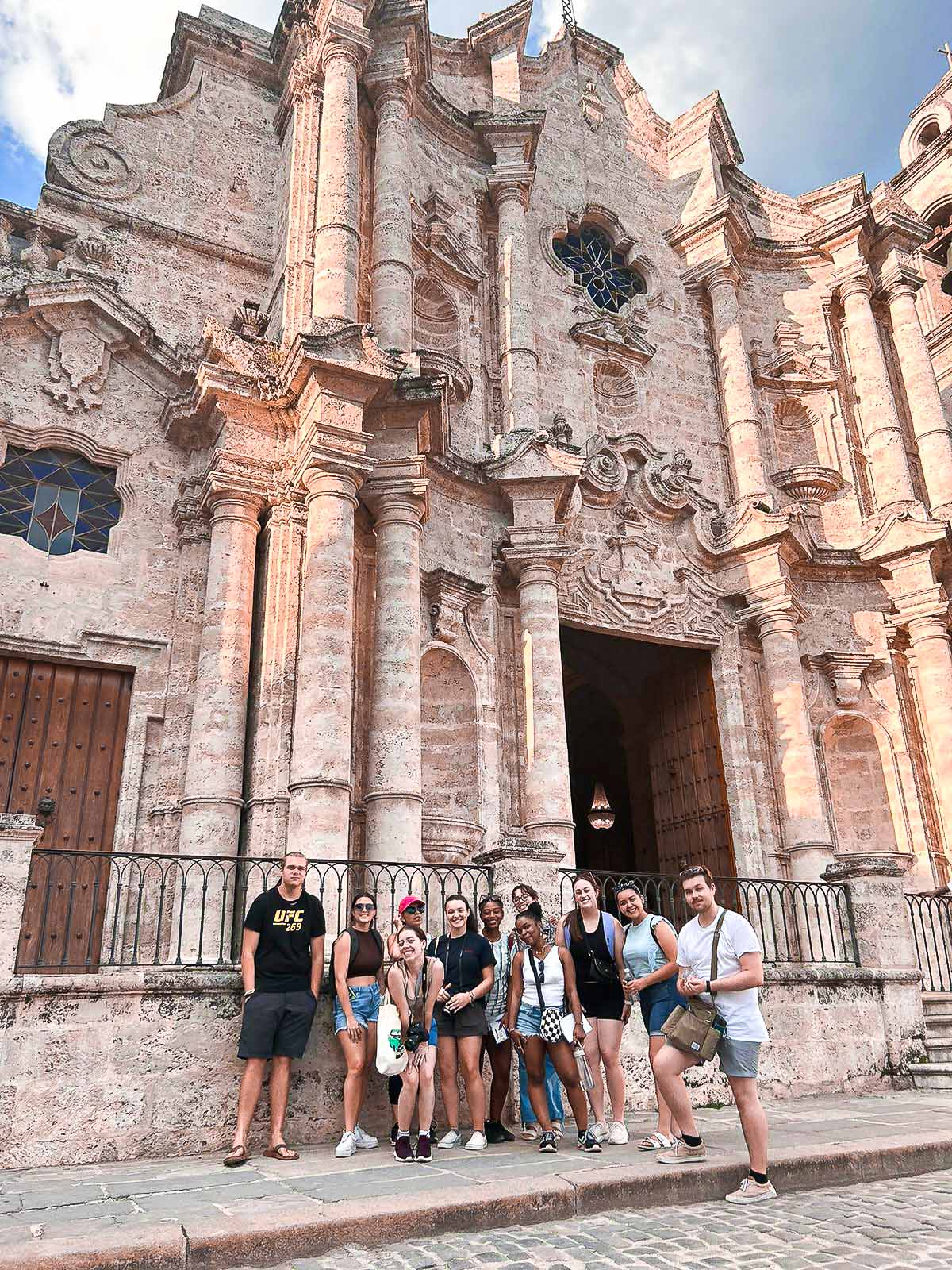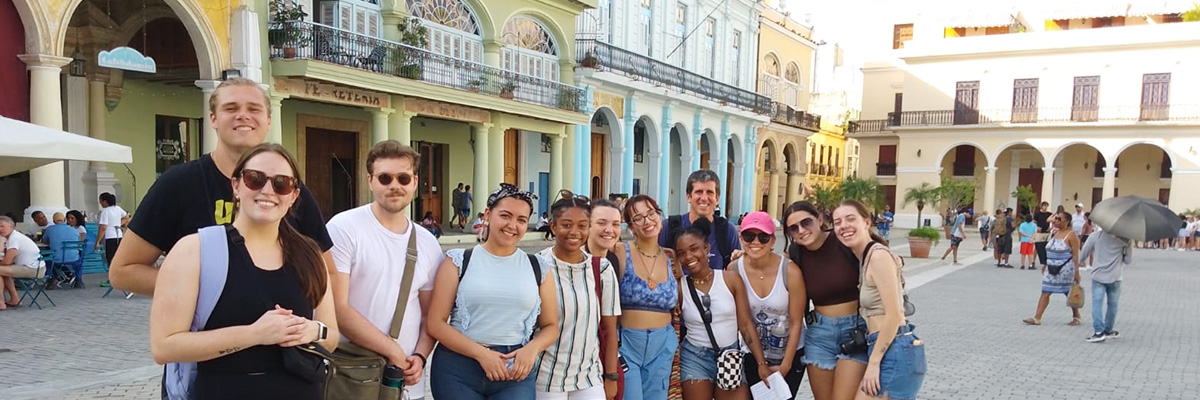Program highlights for La Habana, Cuba
Language spoken:
Spanish
Currency:
Cuban Peso (CUP, ₱)
Climate:
Tropical
City type:
Metropolis (Population >500,000)
Program type:
Specialty
Host university:
Instituto de Filosofía, Cuban Academy of Sciences
Language of instruction:
English, Spanish
Terms offered:
Summer, January
Program capacity:
35 students
Credit type:
U.S. semester credit
Summer Comparative Studies (Uruguay & Cuba) 2026:
Session 1&2: March 15
Summer 2026:
Session 2: April 15
January 2027:
October 15
Eligibility:
- Minimum GPA: 2.5
- Approval from home university
- Enrolled in a degree-seeking program
Scholarships and Financial Aid:
Deadlines vary
- Explore this fascinating Caribbean nation with complex, interesting politics and history.
- Study from the ground level the impact of African, Spanish, and American influences on Cuban culture and society.
- Enjoy the stunning natural beauty of this tropical island—its beaches and bays, lush vegetation, mountains, plains, and robust agricultural areas.
- Join field trips to significant nearby areas in Cuba.
- The USAC Resident Director and staff are present on-site full-time to welcome and support you during your term abroad.
Why Study In La Habana?
 The La Habana program offers an unparalleled opportunity to visit this enchanting island and legendary city to learn about its culture and society. It will also provide a unique occasion for understanding—firsthand—the multiple layers of history that make Cuba significant in North America and in Latin America. The courses will examine not only the history of former Spanish colonies, but also the 20th century, during which Cuba played a significant geopolitical role. The La Habana program will give you the opportunity to experience the past, present, and future realities of Cuban society and its fusion of Spanish, African, and American flavors to create a rich culture of its own.
The La Habana program offers an unparalleled opportunity to visit this enchanting island and legendary city to learn about its culture and society. It will also provide a unique occasion for understanding—firsthand—the multiple layers of history that make Cuba significant in North America and in Latin America. The courses will examine not only the history of former Spanish colonies, but also the 20th century, during which Cuba played a significant geopolitical role. The La Habana program will give you the opportunity to experience the past, present, and future realities of Cuban society and its fusion of Spanish, African, and American flavors to create a rich culture of its own.
The summer La Habana program offers academic coursework in history, society, politics, and culture studies. Many of these courses include enticing field trips offering hands-on experience with the subject matter. The courses and your experiences outside the classroom will focus on the history and society of Cuba, with particular attention focused on exploring the impact of slavery and Cuba’s African roots on its culture and religions, as well as the present-day political and economic factors Cuba faces in its future. This is your opportunity to examine not only the history of former Spanish colonies, but also the 20th century, during which Cuba played a significant geopolitical role.

